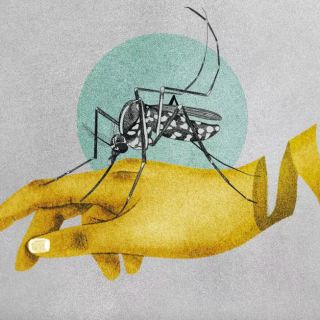
介绍:
本期英文朗读者Doris Li,A global health practitioner/ 一位全球卫生工作者。
她朗读的内容是关于疟疾及其预防的一篇科普短文,内容节选自WHO文章。
Saving lives, two at a time
Malaria kills about 200,000 newborn babies and 10,000 new mothers every year. Most of these deaths are in Africa.Malaria can also cause mothers to lose their babies before they are born, or cause a baby to be born early.
There are low-cost ways to prevent malaria infections. But a new study finds that many pregnant women do not receive these interventions.For example, the World Health Organization has advised pregnant women in areas with high rates of malaria to sleep under bed nets treated with insecticide.
The WHO also advises them to get what is known as intermittent preventive treatment, or IPT. This treatment involves taking a low-cost anti-malaria drug at certain times in their pregnancy in an effort to prevent the disease.
The WHO recommends that pregnant women receive the medicine during visits to a clinic. Many pregnant women and new mothers go to medical clinics in sub-Saharan Africa. Yet researchers say only about 21 percent receive intermittent preventive treatment during their pregnancy. And less than 40 percent are given protective bed nets.
Countries can save lives by following the WHO policy on intermittent preventive treatment.
However, current barriers to malaria prevention include unclear policy and guidance from government and health care officials, drug shortages, a lack of clean water, and confusion about how to administer intermittent preventive treatment.
* 标题为朗读者后加。
* 内容来源:https://www.who.int/news/item/03-06-2022-Updated-WHO-recommendations-for-malaria-chemoprevention-among-children-and-pregnant-women
大家还在听

